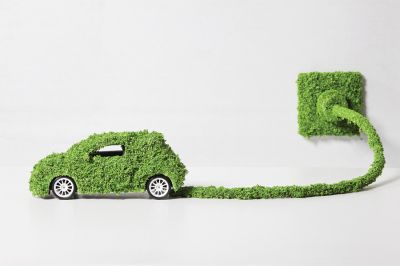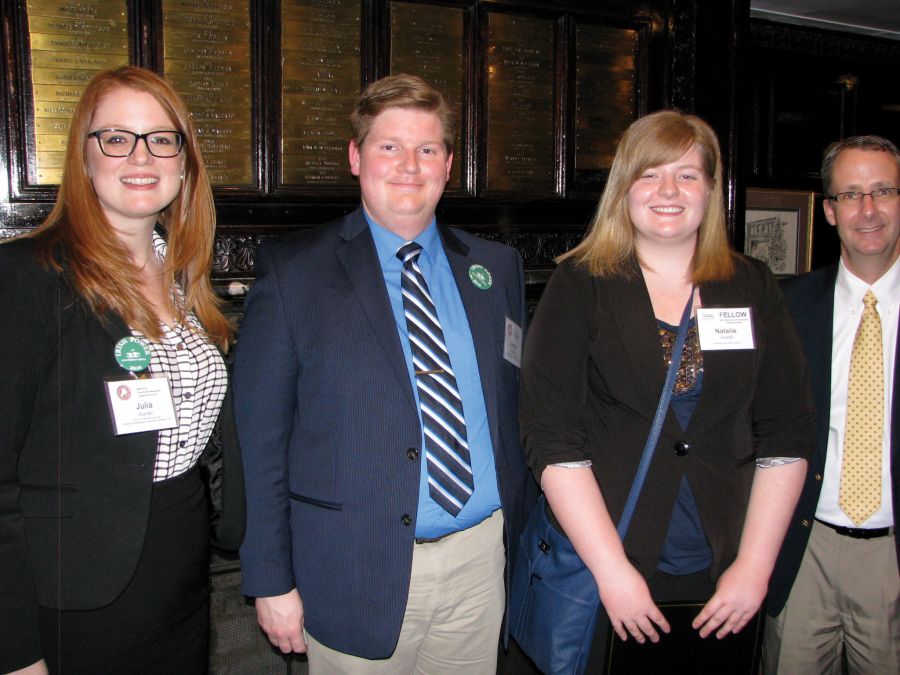Electric vehicles pose opportunity for green transportation
Jun 1, 2022


News Fellow reports on climate change
JENNA PRESTININZI
News Fellow | Michigan Press Association
Electric vehicles are being increasingly developed by the auto industry in Southeast Michigan.
This provides consumers with an alternative transportation mode to traditional gas-powered vehicles as society grapples with the impacts of climate change.
Michigan Environmental Council President and CEO Conan Smith said electric vehicles would greatly benefit consumers.
“They’re super convenient, they’re built upon modern technology that makes them incredibly energy-efficient and they’re going to have more capacity for the kinds of things that make transport fun and interesting,” he said. “You won’t have to waste the space and weight of a vehicle on a big heavy-combustine engine, we can put it into (the) technology of the vehicle that makes the driving experience better.”
Felice Gianluca Sperone, Wayne State University assistant professor of teaching in the Department of Environmental Science and Geology, said electric vehicles can help reduce air pollution, especially in urban settings.
“Those are almost zero-emission of CO2, so if we’re thinking about that, the benefits of having these types of vehicles from an environmental point of view, in terms of gas emissions, that is a huge, huge improvement,” Sperone said.
Detroit Greenways Coalition Executive Director Todd Scott said he would like to see more investments in a wider variety of transportation options. He also thinks a market for smaller electric vehicles is needed.
“There’s been a real heavy focus only on electric vehicles and so our concern is that we’re ignoring the more green transportation options of biking and walking and focusing too much so on electric vehicles,” Scott said.
Scott said there should also be improvements to public transit across Metro Detroit.
“We’re so quick to provide subsidies for people to buy vehicles but for a lot of folks, they can’t afford these electric vehicles or even the insurance on these vehicles, so we need to provide other alternatives,” he said.
Smith and Sperone said that the cost of electric vehicles will likely decrease in the coming years as production and demand rise. They also said the federal incentives such as tax credits are helpful.
Though the production of electric vehicles requires some carbon emissions, this is balanced out by the vehicles’ operations, Smith said.
“The manufacture of an electric vehicle is more carbon-intensive than the manufacture of an internal-combustion engine, but over the life cycle of that vehicle, it’s about half the carbon footprint of an internal-combustion engine,” he said.
However, Scott said he thinks these emissions negate any zero-emission gains.
“There are a lot of carbon emissions associated with creating the batteries for electric vehicles and as of now there’s carbon associated with generating the electricity to move these vehicles,” Scott said.
Government regulations are needed to address emissions from producing electric vehicles, Sperone said.
“In building the electric vehicles and in recycling once they’re done, that is where the government has to take charge because the zero-emission in the conception itself may be a little bit overpassed by the process of building the battery or disposing of the battery,” he said.
Smith said it is important to consider whether fossil fuels or renewable energy sources are being used to power electric vehicles.
“We don’t have enough renewables in our system yet, so we still have a ways to go in terms of Michigan’s grid to make sure that we’re optimizing the positive climate impacts of the transition to electric vehicles,” Smith said.
He said there should be more government investment in renewable energy, including by upgrading Michigan’s grid and helping businesses convert their plants to renewable sources.
Smith said he thinks consumer and industry reluctance slowed down the development of electric vehicles.
“I would very much like to see faster uptake of not just hybrid technology but straight out electric vehicles as well,” Smith said. “Those I think would serve the needs of the vast majority of us drivers and it’s surprising to me that we don’t see a stronger market for electric vehicles yet.”
However, he said he is pleased with progress in recent years.
“We’ve seen the auto industry itself really start to invest heavily and productively in the manufacturing capacity so that is great, maybe we’ll see an uptake as well overall,” Smith said.
Scott said the auto industry should be taking stronger steps to combat climate change.
“They’re shifting the burden onto the consumer where I really think that they need to take a bigger role in reducing greenhouse gas emissions themselves,” Scott said.
Sperone said additional improvements are needed to electric vehicles’ batteries and investing in how to properly dispose of them. Further, a transition to electric power must also occur in other industries to effectively combat climate change.
Michigan’s role in developing electric vehicles is significant, Smith said.
“This is the kind of American ingenuity that we should be proud of and we should be excited about and it’s happening here in Michigan, every one of us should be shouting to the sky in praise for that,” he said. “This is the future and Michigan is driving that.”
Jenna Prestininzi is the 2022 News Fellow for the Michigan Press Association. Prestininzi attends Wayne State University in Detroit, Michigan.










